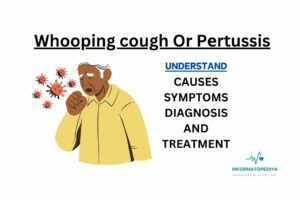
Table of Contents
Jobs In Health Care Industry
The field of healthcare is experiencing rapid growth and high demand, providing an array of job prospects for individuals with diverse skills, backgrounds, and passions. Whether you’re embarking on your career or seeking a change, a healthcare job can be both fulfilling and challenging. This article explores some of the most sought-after positions in the healthcare sector and their responsibilities.
List Of Jobs in Health Care Industry
1. Physicians and Surgeons
As the backbone of the healthcare system, physicians and surgeons diagnose and treat patients with various medical conditions. Specializing in areas such as pediatrics, obstetrics, or neurology, these professionals operate in hospitals, clinics, or private practices.
2. Nurses
Nurses are vital in delivering direct patient care, administering medications, and collaborating with physicians to devise treatment plans. They work in diverse settings like hospitals, clinics, nursing homes, and schools.
3. Pharmacists
Pharmacists dispense medications, provide drug information to patients, and collaborate with physicians to ensure the safe and effective use of medication. They can be found in retail pharmacies, hospitals, and clinics.
4. Physical Therapists
Physical therapists aid patients in recovering from injuries and illnesses, improving their mobility and overall physical functionality. They develop exercise plans, offer hands-on therapy, and educate patients on adaptive equipment usage.
5. Occupational Therapists
Occupational therapists assist patients in enhancing their ability to perform daily activities such as dressing, grooming, and eating. They create exercise plans, provide hands-on therapy, and teach patients how to utilize adaptive equipment.
6. Medical and Health Services Managers
Medical and health services managers oversee the day-to-day operations of healthcare organizations like hospitals, clinics, and nursing homes. They develop policies and procedures, manage budgets, and ensure regulatory compliance.
7. Public Health Professionals
Public health professionals safeguard and promote community health through research, education, and intervention. They operate in government agencies, non-profit organizations, and research institutions.
8. Health Information Technologists
Health information technologists maintain and manage patients’ electronic health records. They ensure the accuracy and security of patient data and comply with regulations.
9. Dentists and Dental Hygienists
Dentists and dental hygienists focus on oral health. Dentists diagnose and treat dental issues, perform dental procedures, and provide preventive care. Dental hygienists primarily focus on cleaning teeth, examining patients for oral diseases, and educating them on proper oral hygiene practices.
10. Medical Laboratory Technologists
Medical laboratory technologists play a crucial role in diagnosing and treating diseases. They perform complex tests on patient samples, analyze the results, and provide data to doctors and healthcare professionals for accurate diagnoses.
11. Radiologic Technologists
Radiologic technologists operate imaging equipment such as X-ray machines, CT scanners, and MRI scanners. They assist in capturing images of patients’ internal structures to aid in diagnosing illnesses and injuries.
12. Medical Assistants
Medical assistants support healthcare professionals in various clinical and administrative tasks. They take patient histories, measure vital signs, assist in examinations, schedule appointments, and manage medical records.
13. Phlebotomists
Phlebotomists specialize in drawing blood from patients for medical testing, transfusions, research, or donations. They ensure the accuracy of patient identification, handle blood specimens properly, and maintain a sterile and safe environment.
14. Medical Coders and Billers
Medical coders and billers play a vital role in healthcare reimbursement and insurance claims. They assign appropriate codes to diagnoses and procedures, ensuring accurate billing and reimbursement from insurance companies.
15. Mental Health Professionals
Mental health professionals, such as psychologists, psychiatrists, and counselors, work in a variety of healthcare settings to assess and treat mental and emotional disorders. They provide therapy, counseling, and medication management to help individuals improve their mental well-being.
16. Home Health Aides and Personal Care Assistants
Home health aides and personal care assistants provide essential care and support to individuals who are elderly, disabled, or chronically ill. They assist with daily activities, including bathing, grooming, medication reminders, meal preparation, and companionship.
17. Healthcare Educators and Trainers
Healthcare educators and trainers play a vital role in educating and training future healthcare professionals. They develop and deliver curriculum, provide instruction, and ensure students are equipped with the necessary knowledge and skills to enter the healthcare workforce.
18. Healthcare Consultants
Healthcare consultants provide expertise and guidance to healthcare organizations. They assist in strategic planning, process improvement, regulatory compliance, and healthcare technology implementation, helping organizations optimize their operations and deliver high-quality care.
19. Genetic Counselors
Genetic counselors work closely with individuals and families to assess the risk of inherited genetic disorders. They provide information, support, and guidance regarding genetic testing, interpretation of results, and the implications of genetic conditions.
20. Respiratory Therapists
Respiratory therapists specialize in assessing, diagnosing, and treating patients with respiratory disorders. They assist in managing conditions such as asthma, chronic obstructive pulmonary disease (COPD), and provide critical care support for patients requiring mechanical ventilation.
21. Speech-Language Pathologists
Speech-language pathologists, also known as speech therapists, diagnose and treat communication and swallowing disorders. They work with individuals of all ages to improve speech, language, voice, and swallowing abilities.
22. Dietitians and Nutritionists
Dietitians and nutritionists educate individuals on proper nutrition and develop personalized meal plans to promote health and manage medical conditions. They work in various settings, including hospitals, clinics, schools, and private practice.
23. Healthcare Social Workers
Healthcare social workers provide support and assistance to patients and their families, helping them navigate the complex healthcare system and access resources. They address social and emotional factors that impact patients’ well-being and collaborate with healthcare teams to ensure holistic care.
24. Healthcare IT Specialists
Healthcare IT specialists focus on managing and optimizing healthcare information systems and technology infrastructure. They ensure the secure storage, exchange, and accessibility of patient data, as well as the smooth functioning of electronic medical record systems.
25. Biomedical Engineers
Biomedical engineers apply engineering principles and technology to develop and improve medical devices, equipment, and diagnostic tools. They work on innovative solutions to enhance patient care and contribute to advancements in medical technology.
26. Clinical Research Coordinators
Clinical research coordinators support and manage clinical trials and research studies. They ensure compliance with protocols, collect data, and coordinate the involvement of study participants, healthcare professionals, and researchers.
27. Rehabilitation Counselors
Rehabilitation counselors assist individuals with disabilities in overcoming barriers and achieving independence. They provide counseling, vocational guidance, and support services to help individuals regain or enhance their skills and quality of life.
28. Art Therapists
Art therapists utilize the creative process to help individuals address emotional, mental, and behavioral challenges. They work with diverse populations, including children, adults, and the elderly, promoting self-expression and healing through art-based interventions.
Conclusion
The healthcare sector provides a wide range of opportunities for individuals with different interests and skills. Whether you have a passion for direct patient care, research, technology, counseling, or creative expression, there’s a role for you in this dynamic and evolving industry. These additional healthcare professions exemplify the diversity within the sector and contribute to improving patient care and advancing medical knowledge. With advancements in science and technology, a focus on preventive care, and a growing emphasis on holistic wellness, healthcare careers offer meaningful and rewarding paths for those who want to make a positive impact. As the demand for healthcare services continues to rise due to an aging population, there will be increasing job opportunities for those considering a career in healthcare.







good information
Your writing has a soothing quality; it’s a pleasure to read.